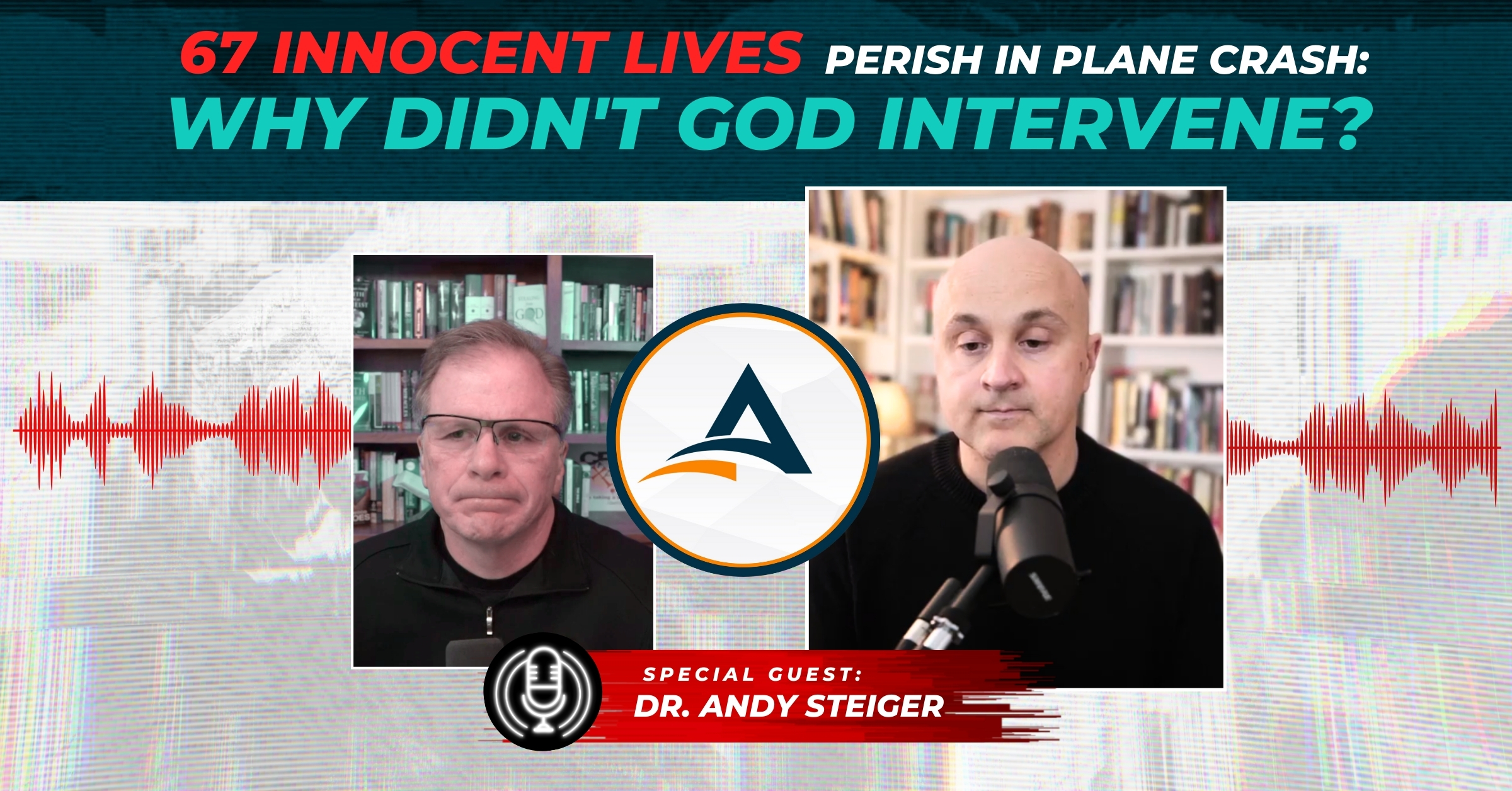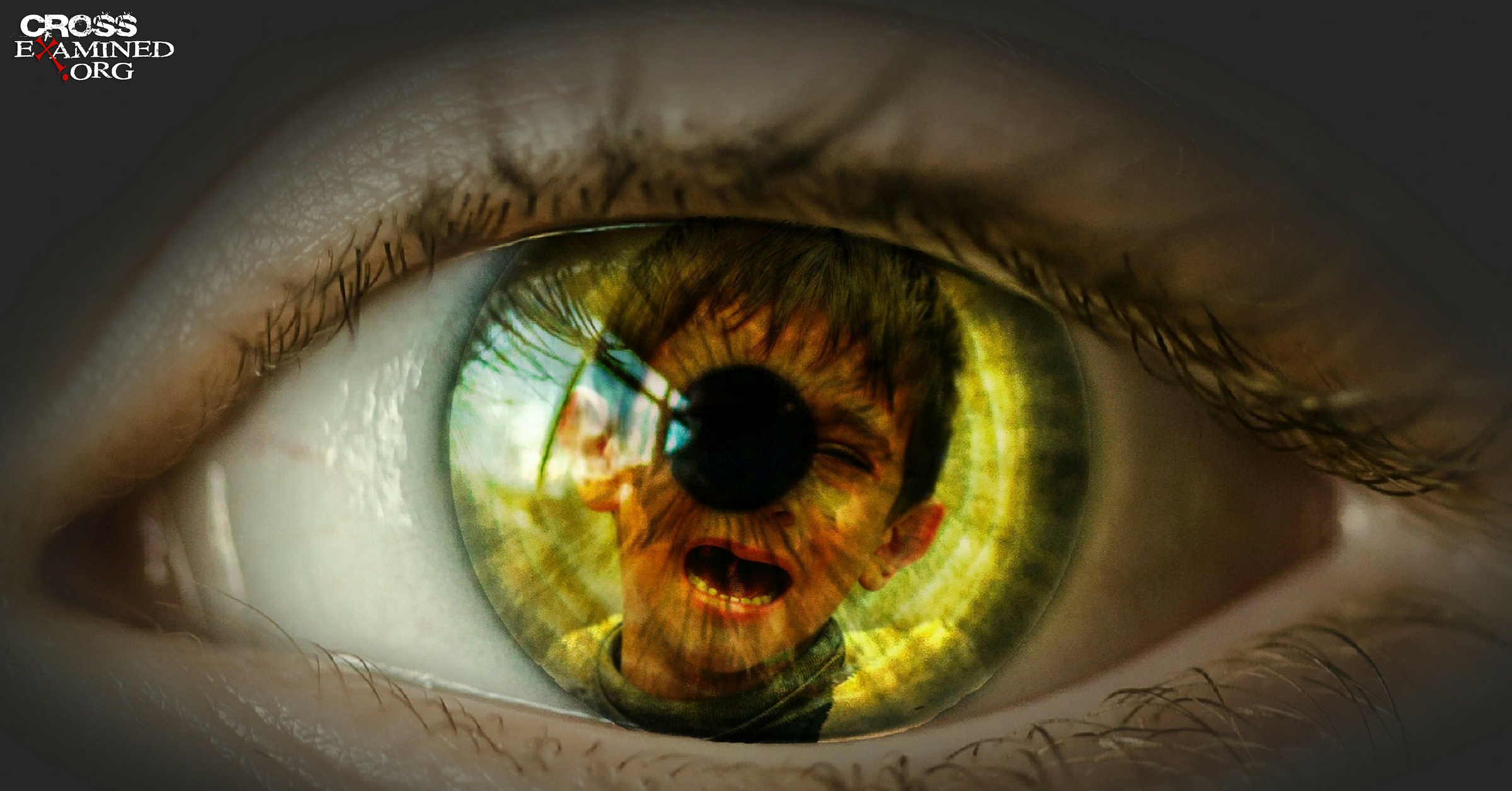By Alisa Childers
Two men.
Both grew up in Christian homes in suburban America. Both have famous Evangelical fathers. Both made personal decisions for Christ and became actively involved and well-known in ministry. One walked away from his faith and became a secular humanist. The other has become one of the top apologists and defenders of the Christian faith.
Who are these two men? The first is Bart Campolo, son of evangelist and author Tony Campolo, and the other is Sean McDowell, son of evangelist and author Josh McDowell. Why did their fairly similar paths lead them to such radically different destinations?
Recently, the two came together to have a discussion on Premier Christian Radio entitled, “Why Bart Lost His Faith, Why Sean Kept His.” It was a fascinating discussion, and the thing that most struck me was the reason they each gave for having become a Christian in the first place. Campolo described how he converted to Christianity after finding a youth group he connected with and attending one of their retreats:
There’s hundreds of kids there. It’s Saturday night, there’s candlelight and firelight and everybody’s singing “Our God is an Awesome God,” and “We Love You Lord.” And in the midst of that kind of environment I had what I guess you would call a transcendent moment…I felt something. It felt like there was something happening in that room that was bigger than the group. I felt like I was connecting to something. And in that moment ….that was God.
I heard something. It was real to me. People that don’t believe in transcendent experiences—I always think like, “You haven’t been to the right concert… You haven’t used the right drugs. You haven’t fallen in love with the right partner.”
These experiences are real, and I think whatever narrative you’re in when you have one, it confirms that narrative. If I would have had that same transcendent moment with my friends in a mosque in Afghanistan, it would have confirmed Islam to me. But I was in the Christian world, so from that point on, Jesus was real to me.
In Campolo’s own words, he became a Christian because of a transcendent experience….a feeling that resonated deeply in his heart.
Later in the conversation, McDowell gave his reason for becoming a Christian. Having believed in Christianity as far back as he can remember, he experienced some serious doubts about his faith when he was a college student. When he shared his doubts with his father, his dad encouraged him to not believe something simply because it’s what he was told. He urged him to investigate the evidence for the truthfulness of Christianity for himself, and to reject anything that was untrue.
After doing some significant evidence investigation, McDowell arrived at the conclusion that Christianity is true….and this is the reason he is a Christian. His faith was not built upon a “transcendent moment,” but on a painful search for objective reality.
Campolo’s Christianity was confirmed by experience, while McDowell’s was confirmed by evidence. Here are 3 reasons why Christians should be evidential investigators, instead of experience junkies:
1. You can be talked out of an experience.
Like Campolo, actor Brad Pitt was raised in a Christian home by Evangelical Christian ministers. In an interview with GQ magazine, he remembered experiencing some of the same feelings at rock concerts that he felt in Christian worship services:
I remember going to a few concerts, even though we were told rock shows are the Devil, basically. Our parents let us go, they weren’t neo about it. But I realized that the reverie and the joy and exuberance, even the aggression, I was feeling at the rock show was the same thing at the revival. One is Jimmy Swaggart and one is Jerry Lee Lewis, you know? One’s God and one’s Devil. But it’s the same thing. It felt like we were being manipulated. What was clear to me was “You don’t know what you’re talking about—”
Pitt wondered if the whole thing was a manipulative sham, which led him to ask some serious questions at a very young age.
If a feeling or experience is what a person’s faith is built upon, it can be easy to re-interpret that experience or explain it away—especially when confronted with the arguments of a smart skeptic, or the crushing reality of suffering and evil.
2. Your heart and feelings lie.
The prophet Jeremiah described the human heart as “deceitful above all things and desperately sick.” Proverbs 3:5-7 tells us not to “lean on our own understanding.” Jesus described the human heart as being filled with thoughts like murder, adultery, sexual immorality, theft, false testimony, and slander. Proverbs 28:26 tells us that whoever trusts his own mind is a fool.
In other words, do not, under any circumstances, follow your heart.
This, of course, stands in stark contrast to the themes we are constantly encountering in entertainment and on social media. However, when it comes to spiritual beliefs, trusting our hearts and following our feelings can lead to all sorts of aberrant theology, sinful choices, and a distortion of true Christian faith.
3. You can fall back on evidence in times of doubt or suffering.
One of the greatest apologists and evangelists in recent times is a man named Nabeel Qureshi. Qureshi grew up in a Muslim home, and after years of testing the claims of Christianity and the claims of Islam, he left Islam and became a Christian. He paid a dear price for his obedience to Christ, leaving his devout Muslim family heartbroken and relationships strained.
At the peak of a respected, growing, and fruitful ministry, Qureshi received news that he had stage 4 stomach cancer….at the age of 33, and with a new baby in tow. He believed God was going to heal him—that there would be miraculous intervention and an amazing testimony to tell about the healing power of God. A little over a year after receiving his diagnosis……he died.
Qureshi documented his cancer journey on youtube, and in one of the early videos, he expressed being a bit rattled by this grim news. However, he went back through his theology and the evidence for his belief in Christ. On his deathbed, looking worn and like a shadow of his former self, he glorified God by doing the exact same thing. He expressed his wonder and disappointment that he hadn’t been healed, but he testified to the existence of God and the truthfulness of Christianity based on what he knew was true.
Qureshi was faithful to the end—despite his suffering and despite any doubts that crept into his mind in his last days. This was because he had a firm understanding of truth to which he submitted his feelings. His faith was not dismantled by doubt, suffering, or even excruciating pain.
At the end of the day, Christianity isn’t always going to feel good. Just ask the apostle Paul who was kidnapped, beaten, whipped, imprisoned, ridiculed, shipwrecked, and stoned—all before he was finally beheaded. Christianity isn’t always going to feel like it’s “working.”
Becoming an evidential investigator rather than an experience junkie led former atheist J. Warner Wallace to an unshakeable conclusion:
I’m not a Christian because it “works” for me. I had a life prior to Christianity that seemed to be working just fine, and my life as a Christian hasn’t always been easy.
I’m a Christian because it is true. I’m a Christian because I want to live in a way that reflects the truth. I’m a Christian because my high regard for the truth leaves me no alternative.
In times of deep doubt or great suffering, it’s wonderful to know that Christianity is true— whether we feel it or not!
Recommended resources related to the topic:
I Don’t Have Enough Faith to Be an Atheist (Paperback), and (Sermon) by Norman Geisler and Frank Turek
Stealing From God by Dr. Frank Turek (Book, 10-Part DVD Set, STUDENT Study Guide, TEACHER Study Guide)
Tactics: A Game Plan for Discussing Your Christian Convictions by Greg Koukl (Book)
Defending the Faith on Campus by Frank Turek (DVD Set, mp4 Download set, and Complete Package)
So the Next Generation will Know by J. Warner Wallace (Book and Participant’s Guide)
Fearless Faith by Mike Adams, Frank Turek, and J. Warner Wallace (Complete DVD Series)
__________________________________________________________________________________________________________________________________________________
Alisa Childers is an American singer and songwriter, best known for being in the all-female Christian music group ZOEgirl. She has had a string of top ten radio singles, four studio releases, and received the Dove Award during her time with ZOEgirl. In later years, Alisa found her life-long faith deeply challenged when she started attending what would later identify as a Progressive Christian church. This challenge pushed Alisa toward Christian Apologetics. Today you can read, listen and watch Alisa’s work online as well as purchase her recently published book on Progressive Christianity titled Another Gospel.
Original Blog Source: https://cutt.ly/Bb3XlW3










